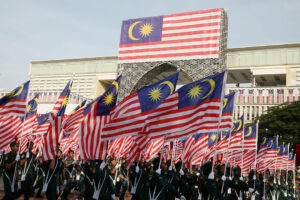DMW’s promise of greener pastures for land-based OFWs

Republic Act No. 11641 created the Department of Migrant Workers (DMW), which has the mandate to regulate the recruitment, employment, and deployment of Overseas Filipino Workers (OFWs), among others. On June 9, the Department, headed by Secretary Susan Ople, issued the 2023 Rules and Regulations Governing the Recruitment and Employment of Land-based OFWs. This new set of rules effectively repealed the 2016 Revised Rules and Regulations Governing the Recruitment and Employment of Land-based OFWs.
The DMW claims that the new rules effectively simplified the process. It also asserts that the new rules now offer better protection for OFWs. Here are some of the salient provisions:
First, the rules redefined the meaning of OFW. Under the old rules, an OFW is “a person who is to be engaged, is engaged, or has been engaged in a remunerated activity in a State or country of which the worker is not a citizen.” However, in the new rules, an OFW is now defined as a “Filipino who is to be engaged, is engaged, or has been engaged in remunerated activity in a country of which he or she is not an immigrant, citizen, or permanent resident or is not awaiting naturalization, recognition, or admission, whether land-based or sea-based regardless of status; excluding a Filipino engaged under a government-recognized exchange visitor program for cultural and educational purposes.”
What does this mean for OFWs? The new rules made it more specific and excluded not just those who are already immigrants, citizens, or permanent residents, but also those awaiting naturalization, recognition, or admission. For example, a Filipino who is awaiting permanent residency in Australia, and is currently being sponsored a working visa, is no longer within the definition of OFW under the new rules. In effect, the protection and even the disciplinary actions and penalties laid down in the rules will not apply to that Filipino.
Second, the new rules provided a longer validity for licenses of recruitment agencies. From the initial two-year provisional license, the new rules made it three years. As for the regular licenses, the four-year validity is now extended to six years.
However, with this new validity, the new rules now require payment of license fees amounting to P200,000 every time an agency applies for either provisional, regular, or renewal of license.
Third, the enforcement of provision of accommodation facilities and other adequate provisions is now made stricter. The new rules provide: “All accommodation facilities provided by either the Philippine recruitment agency or the foreign principal/employer shall provide OFWs with adequate provisions such as food, drinking water, beds, blankets, toilet facilities, and other amenities to ensure decent and humane living conditions, free of charge.” (Rule XIV. Accommodation Facilities. Secs. 101) This provision has no equivalent in the old rules.
Under the old rules, one of the minimum provisions of the contract is “food and accommodation or the monetary equivalent which shall be commensurate to the cost of living in the host country, or off-setting benefits…”
The new rules provide assurance to OFWs that they will be given decent and humane living conditions while they are far from home. They also provide prohibitions against employers, in relation to the accommodation facilities: a.) the travel and employment documents of OFWs shall not be withheld, and, b.) the OFW shall not be prevented from freely leaving the accommodation or from communicating or contacting their family and loved ones.
To enforce this provision, the Department requires quarterly reports to be submitted, which must be attested by the caretaker or house manager. Failure to comply with this requirement is a new ground for disciplinary action under Section 139 (Light Offenses), which has a penalty of suspension of license.
Lastly, applicants through agencies, agencies, and principal employers must be wary of committing any graft and corrupt practices as the new rules sanction such with cancellation of license. The new rules provide the following as grounds for serious offense: “Directly or indirectly committing acts constituting graft and corrupt practices, involving any official, employee, or personnel of the Department.” This provision has no equivalent in the old rules.
Many of the requirements, processes, and procedures were deleted in the new rules, with a note that the Department will prescribe guidelines and Rules for Adjudication. With the repeal of the 2016 Revised Rules and the absence of these guidelines, there is some confusion regarding these aspects, especially that the Department is exposed to a lot of queries and applications every day.
So, is the grass greener on the other side for OFWs? The Department is surely experiencing some birth pains as a new agency in the country, but the future still looks promising.
The views and opinions expressed in this article are those of the author. This article is for general informational and educational purposes only. It is not offered as and does not constitute legal advice or legal opinion.
Shikyna Joy Castillo is an associate of the Labor and Employment of the Angara Abello Concepcion Regala & Cruz Law Offices or ACCRALAW.
(632) 8830-8000




